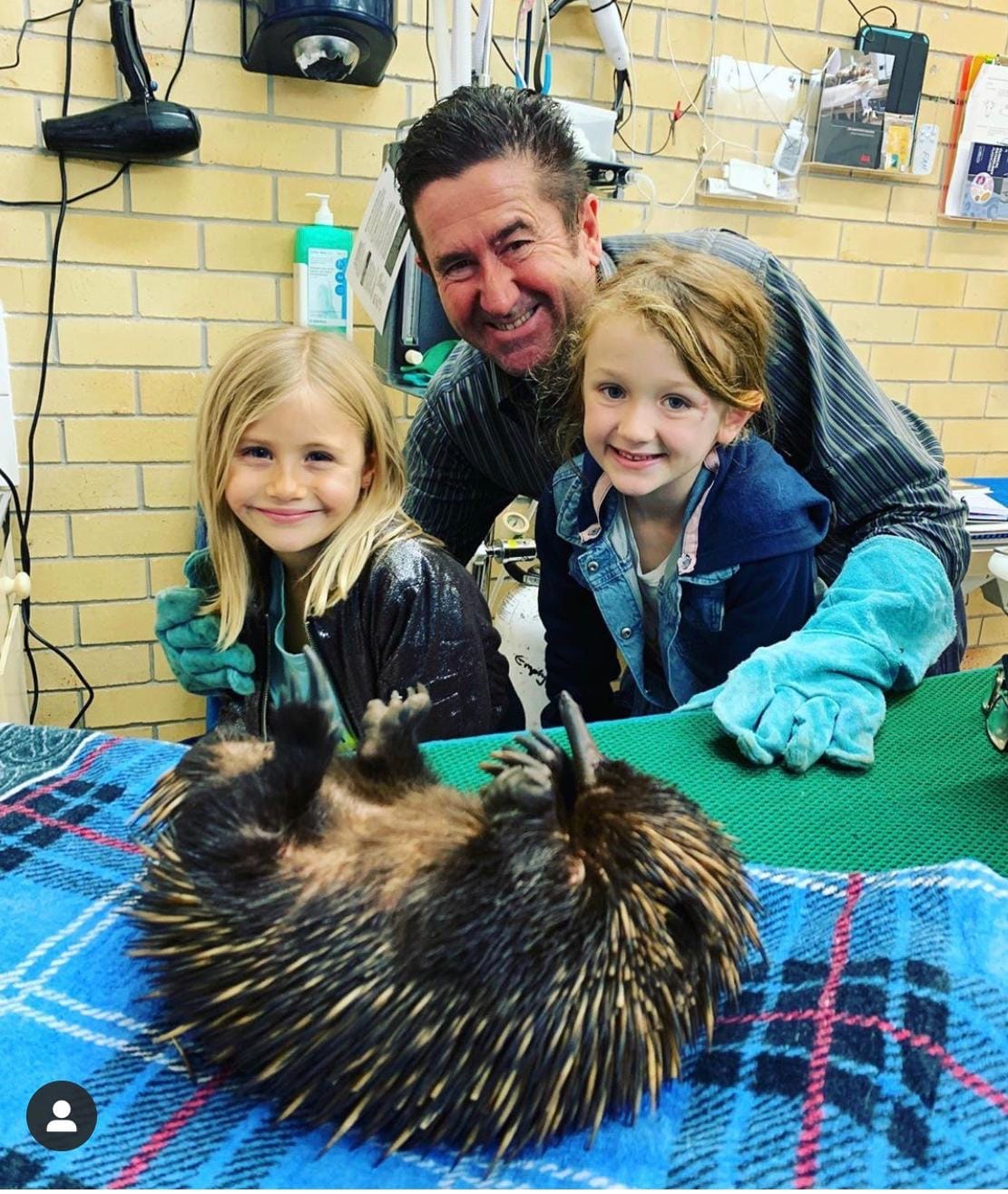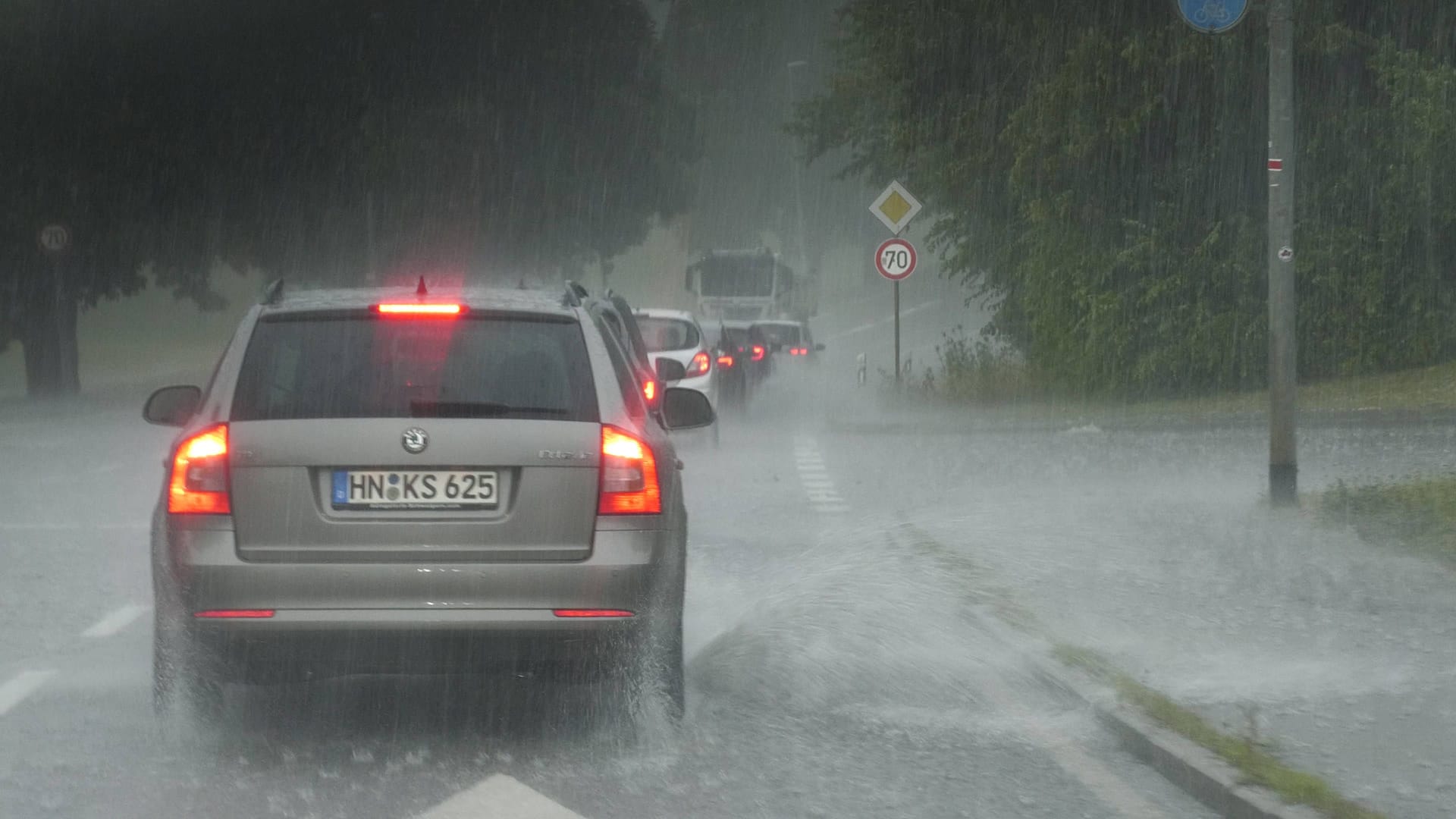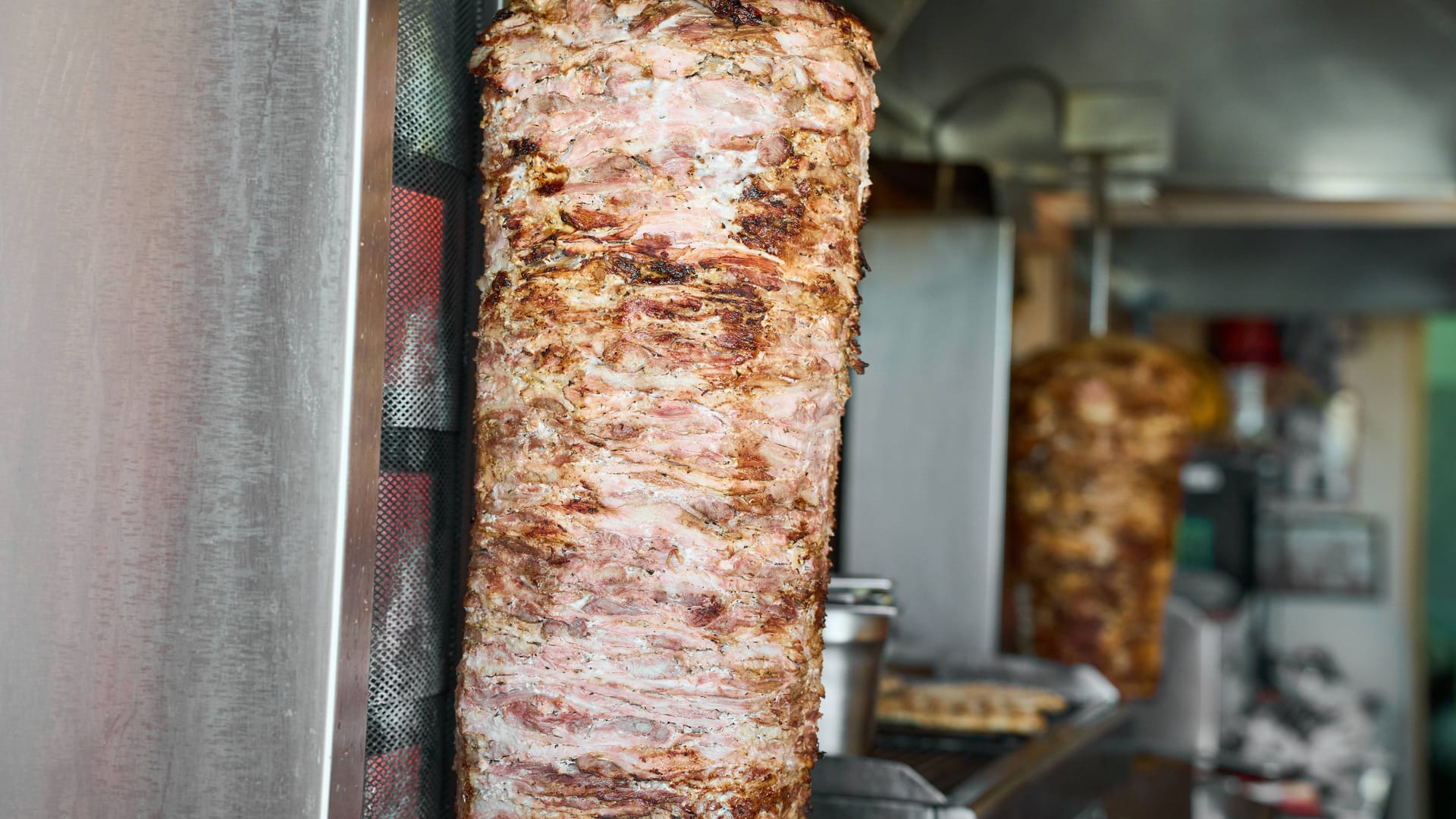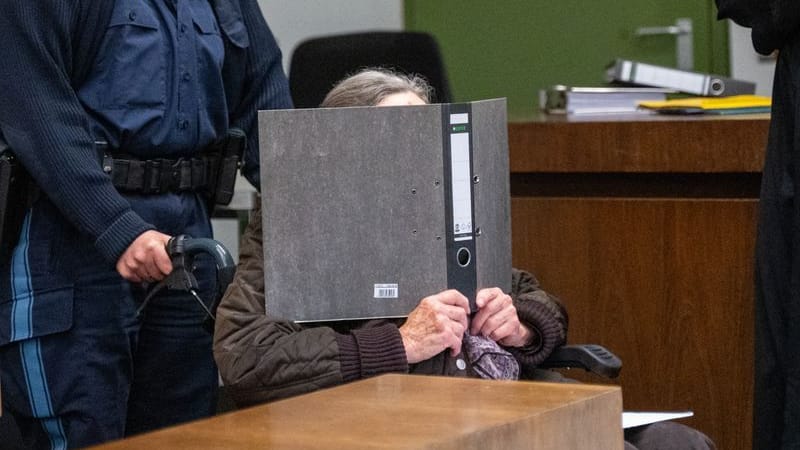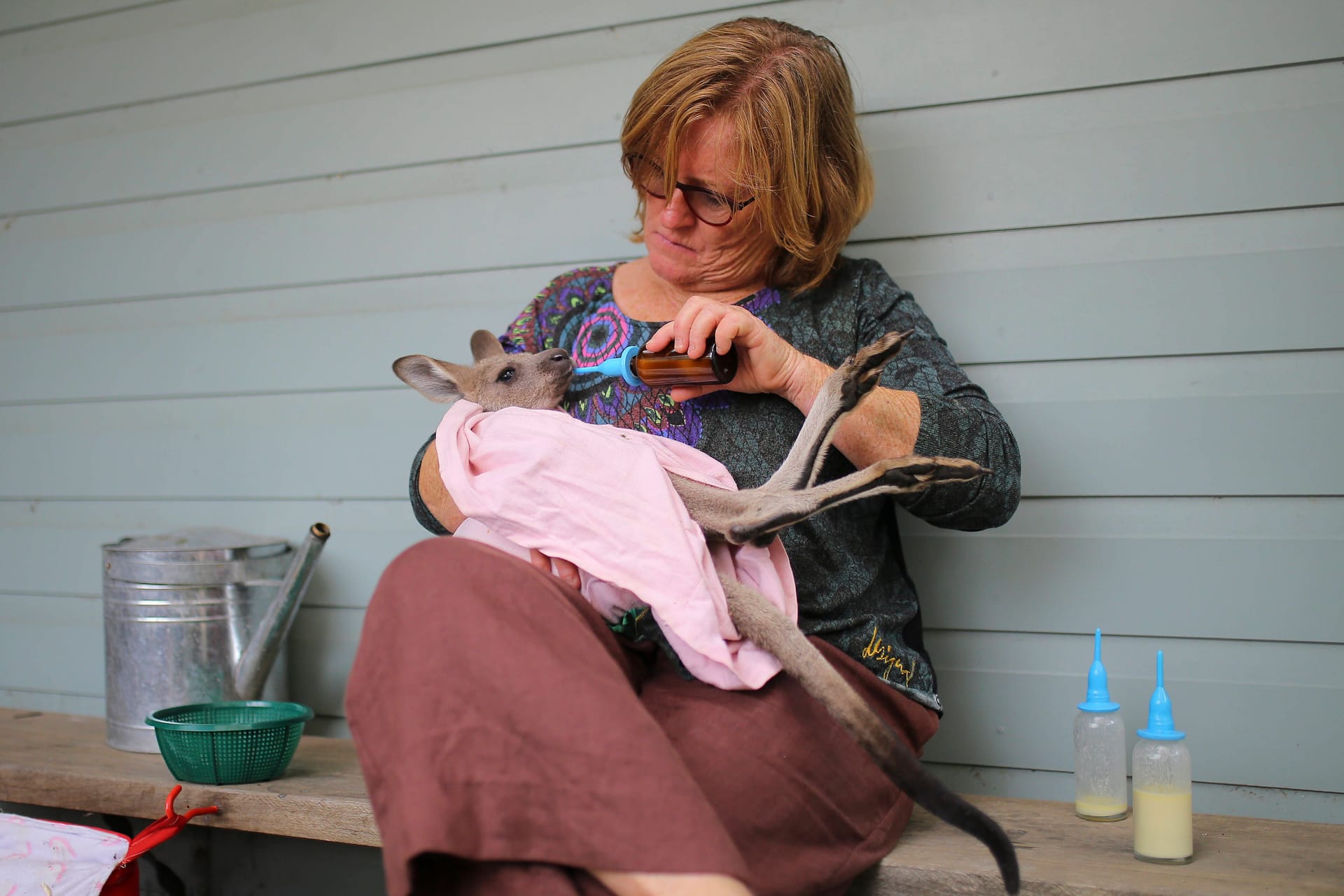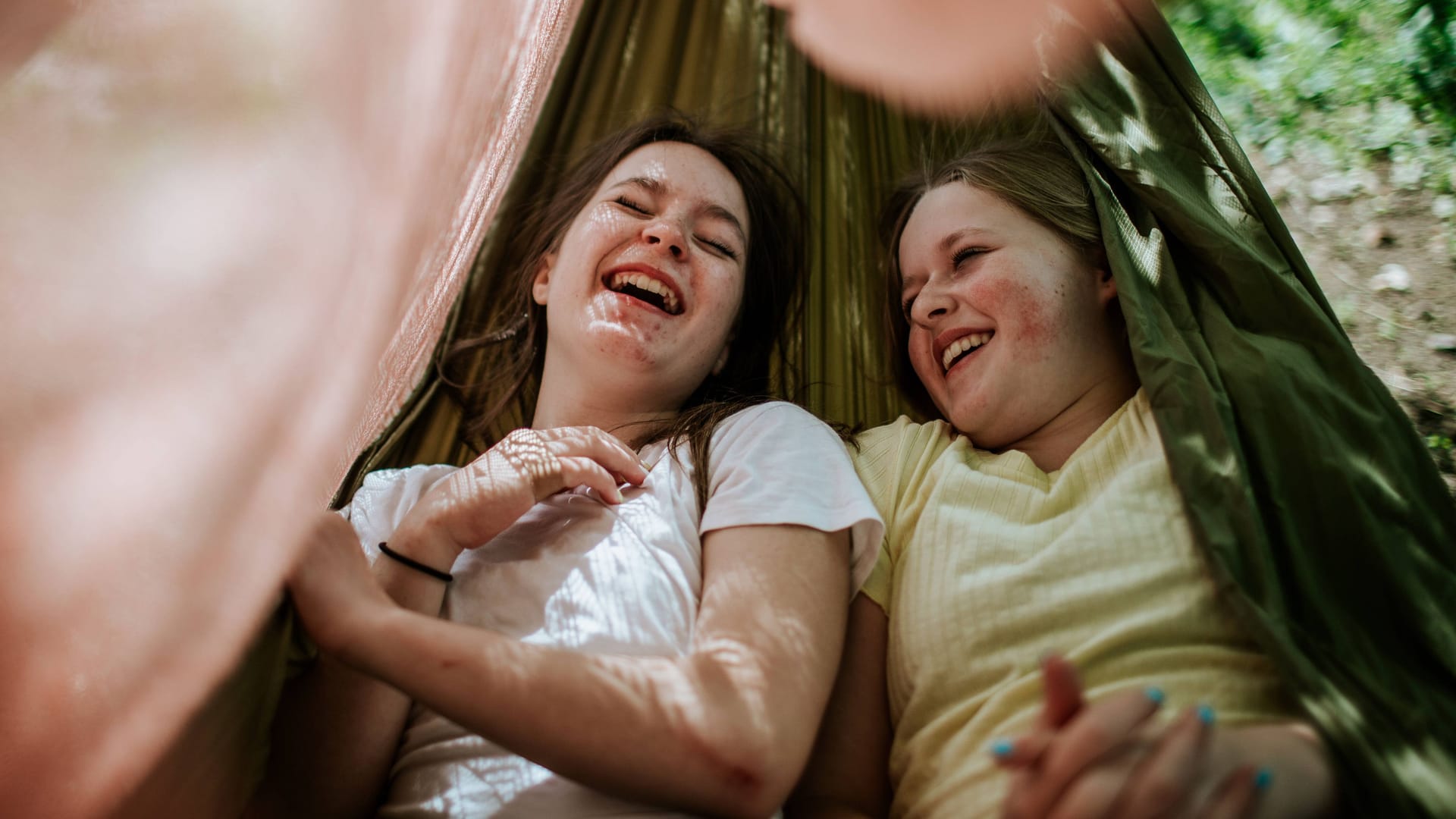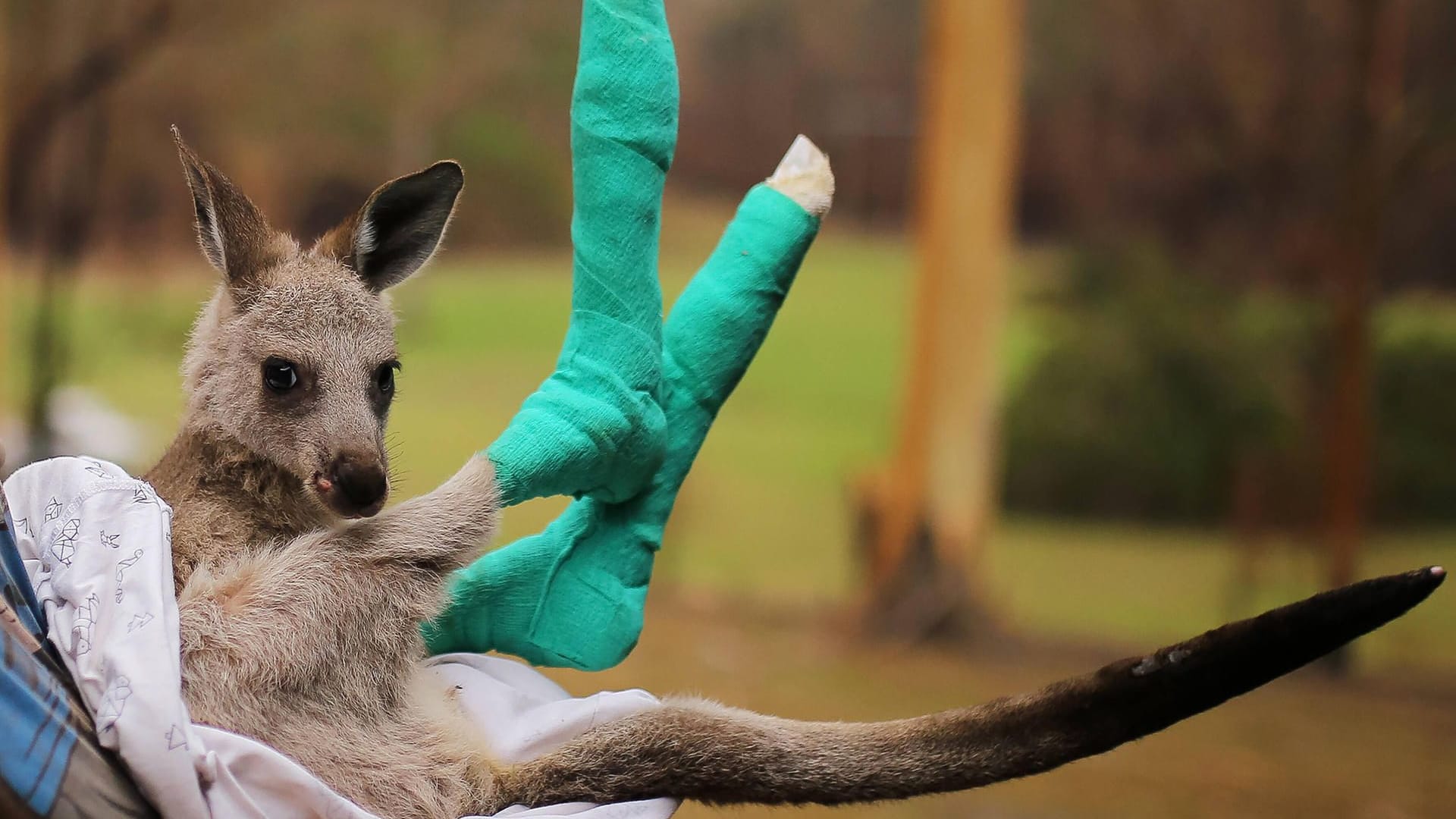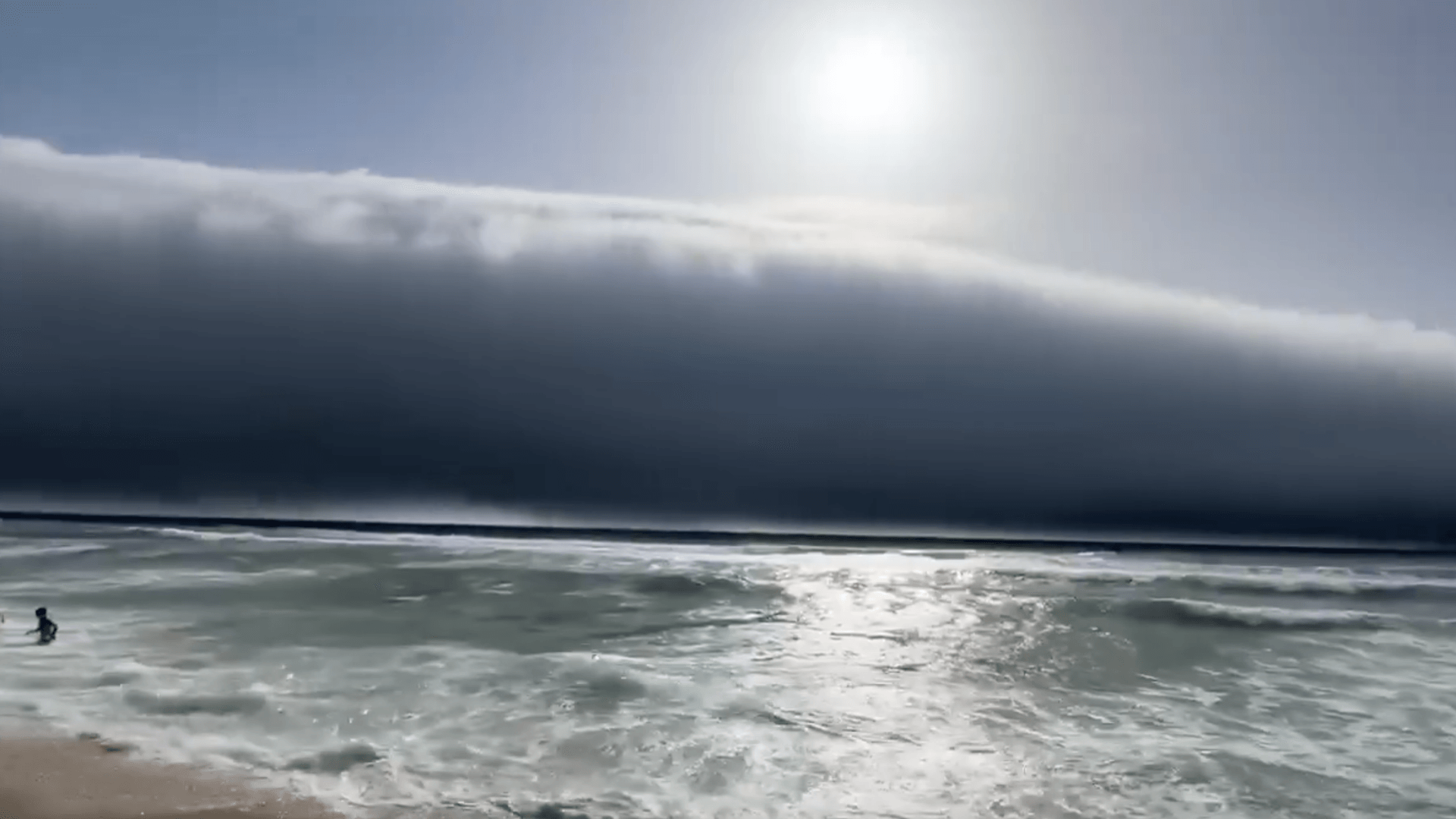
Mehr als 150 Journalistinnen und Journalisten berichten rund um die Uhr für Sie über das Geschehen in Deutschland und der Welt.
Zum journalistischen Leitbild von t-online.Australia's largest wildlife charity under fire The 100-million-dollar question – what happened to the donations?
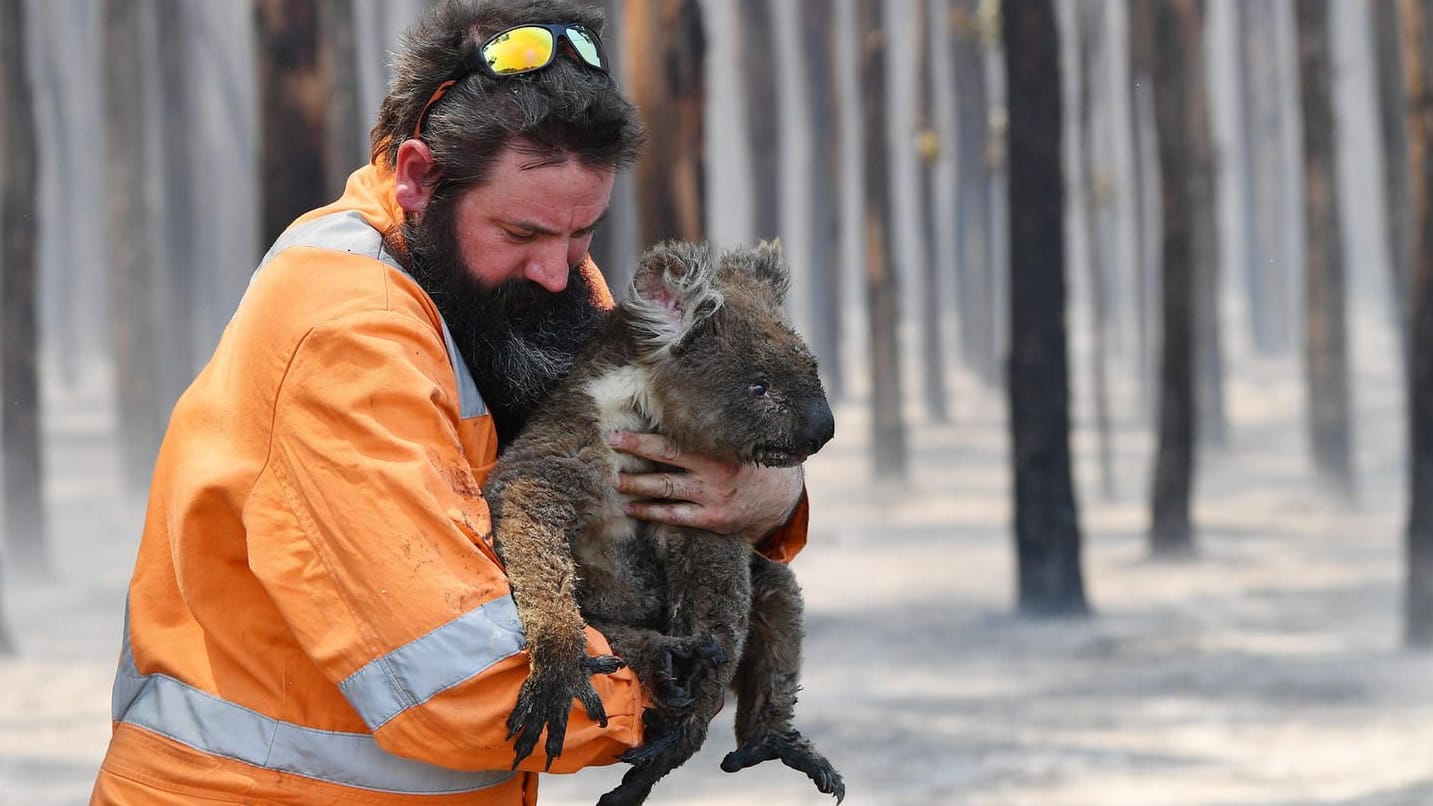

An animal rescue organisation in Australia raised a record-breaking sum of over $100 million in donations following the devastating bushfires. Two years later, questions are raised: What happened to the money?
Lewis Hamilton, Barack Obama and Ellen DeGeneres all rallied support, raising large sums of money for a relatively unknown Australian animal rescue organisation. During the devastating "Black Summer" in 2019 and 2020, when bushfires raged for weeks, NSW Wildlife Rescue and Education Service (WIRES) raised millions of dollars in donations. But while the fires have long been extinguished, WIRES is now facing a new challenge. The organisation has come under scrutiny for the way it is managing its funds.
Before the fires, WIRES was one of many wildlife rescue organisations operating in Australia. It routinely managed revenue of about 3 million Australian dollars per year. Harrowing images of burned kangaroos and koalas triggered a global wave of sympathy. In the financial years of 2020 and 2021 combined, WIRES raised a record amount of more than $100 million in donations. The money in their kitty had grown to roughly thirty times its previous amount.

Wir benötigen Ihre Einwilligung, um den von unserer Redaktion eingebundenen X-Inhalt anzuzeigen. Sie können diesen (und damit auch alle weiteren X-Inhalte auf t-online.de) mit einem Klick anzeigen lassen und auch wieder deaktivieren.
Frustration grows over unspent donations
Germany, USA, Australia: People from around the world rallied behind the cause, donating money to WIRES. But two years after the bushfires, several prominent figures within the wildlife sector are voicing concerns. Stephen Van Mil, an Australian vet and chief executive of the Byron Bay Wildlife Hospital, said he was frustrated with the organisation. "More than 24 months later and the money wasn't spent where it should have been – saving wildlife," he said.
Van Mil also claims that WIRES declined to help with the hospital’s costs, despite repeatedly sending carers with injured wildlife to the clinic for free treatment. "We are the only dedicated hospital in New South Wales (NSW) that treats all and only Australian wildlife, and WIRES is an organisation based in NSW," he said. Van Mil said he believes the interest WIRES has accrued on the donations by now would be enough to build another wildlife hospital.
Byron Bay Wildlife Hospital is the first mobile wildlife hospital in Australia and was financed through donations after the fires. Van Mil explained that the hospital needed $1.3 million annually to keep its doors open.
WIRES CEO rebuffs criticism
Financial documents filed by WIRES show that it raised $102.4 million in donations in the financial years 2020 and 2021. $90.4 million of those funds flowed into a bushfire emergency fund. The emergency fund was set up in late 2019 and closed in mid-2020. At the end of the 2021 financial year, the emergency fund was still at a balance of about $77.3 million. In total, WIRES still held a position of approximately $87.2 million in donations.
WIRES disputed suggestions it had failed to spend most of the bushfire funds. Chief executive officer Leanne Taylor said to t-online: "The WIRES emergency fund was created to respond to the compounded disasters experienced by wildlife through the preceding long-running drought, fires, and extreme weather events."
"It should be noted that WIRES has only ever been an NSW wildlife rescue organisation; however, as custodians of these unprecedented donations, we made a commitment in January 2020 that we would also provide support to the wildlife sector nationally, and we continue to do. We also communicated that the donations would be used for both short-term emergency response and long-term recovery plans – and our actions and intent have not wavered," she wrote.
Taylor noted the Byron Bay Wildlife Hospital had unsuccessfully applied for a grant in 2020 given to applicants through an organisation called Landcare. "An independent panel selected by Landcare reviewed the applications, not WIRES management," she said. A further funding request by the clinic in March for the treatment of flood-affected animals was "deemed unnecessary" by WIRES, as vets in the affected areas had been notified that emergency government funding was available.
Member of the WIRES board resigns over unspent funds
Julie Mills, a prominent Australian philanthropist, recently resigned from her position on the board of WIRES. She said she made the decision partly because she wanted to bring "bolder" ideas to fruition. She was concerned the organisation would not be living up to its commitments after donations had flowed in from all over the world.
Mills voiced her concerns about the organisation in conversation with t-online. "There is a dedicated wildlife hospital sitting in the flood zone, and at some level, WIRES refused to say: 'Fantastic, let's support what they're doing.'" Without dedicated facilities, wildlife carers were forced to sit in the waiting rooms of vets who specialised in pets. The treatment of wild patients wouldn't get the priority it deserved, Mills explained. There was no money to be made from wildlife.
One of the main threats Australian wildlife faces is the loss of natural habitat. Mills said partnerships and funding to purchase land to release rehabilitated animals should have been a critical priority. A survey of WIRES members had also confirmed this, she said.
Looking at the projects funded by WIRES so far, Mills claims there were no significant grant allocations appropriate to an organisation holding funds of over $100 million brought before the board. "The allocation of funding to date has primarily been to support existing processes and educational options," Mills said. "Why hasn’t the board driven for, and the management team sought, more ambitious partnerships and initiatives?" Mills further questions whether some project proposals didn't make it past management and were therefore not seen by the board.
Melbourne nurse slams organisation in an open letter
Sarah Hart, a nurse from Melbourne, has been voicing criticism over how WIRES uses its funds publicly. She joined the organisation during the bushfire crisis to help rehabilitate burned kangaroos. It was when she learned that about $7 million out of $60 million raised in donations at the time was spent to support the work of the carers directly.
Hart told t-online that she met with Leanne Taylor in 2020 and pointed out that volunteers in the fire zone needed more support from the organisation. In an open letter published on Facebook, she concluded afterwards: "The world made a massive mistake in entrusting $60m to your organisation." She appealed to the organisation: "It is imperative that you release funds immediately to allow wildlife carers to do what they dedicate themselves to do."
Two years after her public outcry, Hart spoke to t-online: "All these people donated money, thinking it would go to the carers to help them do what they do." She said she believed the entire wildlife sector in Australia needed reform. "People and animals are suffering because carers aren't getting the support and facilities they need," said Hart. "That's the big point; the funds didn't go where they were intended to go."
WIRES declined to comment on the concerns raised by Mills and Hart. A list of funding and partnerships shared by the organisation shows wildlife carers have been receiving support via a "five-year WIRES National Grants Program" and education and training programs. "It is always easy for observers to stand on the sidelines and pass comments on how another organisation's donated funds are distributed. In reality, the task is far more complex when confronting the myriad of challenges facing our wildlife," Leanne Taylor wrote in her first statement to t-online.
Another wildlife charity that raised a large sum of funds during the "Black Summer" bushfires is the "World Wild Fund for Nature Australia". In response to the catastrophic fires, it had – similarly to WIRES – launched an "Australian Wildlife and Nature Recovery" fund in January 2020. The appeal raised $50.9 million, of which their German branch contributed around $3.3 million.
"Our bushfire funds are being deployed over multiple years to deliver long-term restoration plans. To date, we have mobilised $42.6 million to support 177 projects and more than 221 partnerships across the country", the organisation wrote. WWF said it had also helped to establish and equip the Byron Bay Wildlife Hospital. The organisation refused to comment on the processes and decisions made within WIRES.
German institute lists WIRES in their information brochure
In Germany, an information brochure on the bushfires – published by the independent Deutsches Zentralinstitut für Soziale Fragen (DZI – German Institute for Social Issues) – recommended WIRES and WWF Australia as trusted organisations for those wishing to support wildlife. DZI is an independent Berlin-based organisation that advises on how donors can sensibly use their money. It also awards a seal of approval to reputable charities.
Burkhard Wilke, managing director of the DZI, expressed surprise upon learning about WIRES’ financial figures. Wilke noted that the sum of donations WIRES still held was unusually high. "In this case, we'd expect that the organisation holds back on further appeals, makes plans on how the money can be spent sensibly and promptly and is open to partnerships with other organisations," he said.
According to Wilke, the situation in Australia had been challenging to assess at the time of the bushfires. The institute didn’t have direct connections to charities on the ground, and there was no organisation comparable to the DZI for collaboration.
The willingness in Germany to donate had been high, Wilke said. The institute decided to publish a recommendation for an organisation without their seal of approval. WIRES was listed in the brochure because it appeared to have a professional website, was recommended by the Australian government and was described as one of the largest wildlife rescue organisations in the country, he explained. "Such an organisation may take several years to use the money," he added. "But it must also be open to partnerships during that time; donations should be used as promptly as possible and at the same time effectively and efficiently."
WIRES CEO Leanne Taylor said in a statement to t-online that the organisation adhered to the guidelines of the DZI.
NSW government: No "authority to investigate or intervene"
In New South Wales, where WIRES is based, the government issues wildlife rehabilitation licences to rescue groups that train and authorise carers. The NSW Department of Planning and Environment website states: "The department of planning and environment regulates wildlife rehabilitation to ensure services are available, reliable and applied in accordance with best practice." WIRES has more than 3,000 volunteers in NSW who work as members in 28 branches.
When contacted by t-online about recent complaints, a spokesperson for the department said it "did not have the authority to investigate or intervene in internal governance, internal management decisions and financial management issues or disputes within the wildlife rehabilitation sector".
Regarding the question of a possible conflict resolution, the NSW Environment Minister's office further communicated: "The NSW National Parks and Wildlife Service has provided a conflict management toolkit for the wildlife rehabilitation sector to guide groups on ways of managing internal disputes and avenues for resolving them." Furthermore, the sector had access to consumer watchdog NSW Fair Trading and the Australian Charities and Not-for-profits Commission (ACNC).
An enquiry by t-online to the NSW Premier – on the issues raised with the largest not-for-profit organisation in his state – remained unanswered.
An Australian commission reviewed three charities in 2020
The Australian Charities and Not-for-profits Commission has already reviewed complaints about the administration of the windfall donations received due to the fires. In October 2020, the commission questioned three Australian charities, including WIRES. A survey of donors had shown that most of them wanted their money spent on fire-related measures within months, the commission stated.
Regarding WIRES, the commission concluded: "WIRES is taking a strategic and reasonable approach to the disbursement of funds." The organisation had taken the necessary steps to manage its rapid growth appropriately, build new partnerships and enhance its financial management systems, it said in the report. "While the ACNC would prefer to see additional governance in place, the circumstances explain why the controls were not there when the donations were received, and we are encouraged that WIRES has actively identified gaps and is improving its practices."
Australia’s number of endangered animal and plant species has risen by eight percent in the past five years. Between 2000 and 2017, approximately 7.7 million hectares of land were cleared, contributing to habitat loss. These are just two key findings from a recent Australian government report on the country's environmental state. The bushfires have also taken a heavy toll on wildlife: an estimated three billion Australian animals were killed or displaced during the "Black Summer".
- Eigene Recherchen und Interviews
- DZI-Spendeninfo "Waldbrände in Australien"
- Bericht der Australian Charities and Not-for-profits Commission
- www.acnc.gov.au: Finanzberichte von WIRES
- environment.nsw.gov.au: Obtaining a licence
- National Parks and Wildlife Service: Code of Practice for Injured, Sick and Orphaned Protected Fauna
- soe.dcceew.gov.au: Australia State of the Environment Report
Quellen anzeigen









